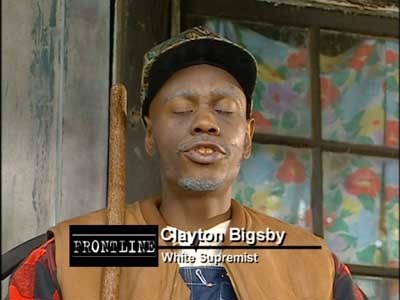Hey! I realised recently that my blog doesn’t really show
you what I’m up to, and who I am. Surely if you’re reading my blog you wanna
know who the hell you’re reading about? Don’t worry, this won’t be too much
like an “about me” page on LinkedIn, but more like my motivation for writing
the articles I like to write about, and a little what I’m up to and what I’m
planning in the future.
So, as I’ve already mentioned a million times, I am a
graduate, about to embark on the rocky path to employment. You may notice I
write a lot on race, and I do so because issues concerning race cause the
strongest reaction. I am half Jamaican, but my father was born in Yorkshire,
and is without a doubt, the most Yorkshire man you’ll probably meet. Basically,
all he’s just missing is his flat cap and whippet.
I don’t deny I am “white-passing”, which means you’d
probably mistake me for being white and as a result, I can “pass for white” if
I chose to. Despite this, I have still experienced racism. I’ve been casually
called “n*gger” more than once, had people downright refuse to believe I’m
mixed race, someone saying my mother must be “as white as a ghost”, even been
made to overhear a group of classmates talk about, amongst other racist topics,
killing mixed race children on arrival.
I have even had mild institutional racism thrown at me, take
for example, the time I was told I need a special helper at school because of
my Afro-Caribbean heritage. All children of African or Caribbean descent were
offered helpers, who sat in at least one lesson. Funnily enough, she sat in on
an English lesson, where I was top set. I went on to achieve a 2:1 degree
classification in English and Film. Let’s just say, she was a little bored and
never came back.
I think it is important to emphasise that I don’t pretend to
know what it is like to be black. I know how privileged I am, the most racism I experience is when I tell
people I’m mixed race. However, I think my experience is important to take note
of, because it shows how this “colour blind” notion, that assumes race is just
about skin colour, is actually a load of rubbish. If I, an undeniably
white-looking woman, can still experience racism, then how can racism simply be
about skin colour? A blind man can still be racist, as he is still in contact
with society and can form judgement based on what he hears and feels. There is
a Dave Chapelle sketch that illustrates this quite well actually.
So, enough about race for a while, if you wish to know more,
please ask me in the comments, and I’m more than willing to answer. I quickly want to
mention I am a feminist, as I think most politically-aware/interested women
should be. I used to be completely anti-feminism, right up until A Levels. What
is important to understand about anti-feminists, is that the vast majority of
the time, they do not know what feminism is. For me, I assumed feminism was an
out-dated movement, trying to be equal to men when we already had everything we
needed. I was made to mention it in class once, and even as I spoke I couldn’t
form a legit answer as to why I hated feminism.
These two previously mentioned factors, as well as being
your average, politically-minded unemployed graduate motivate me to write. I
don’t feel that I have anything ground-breaking to announce to the world just
yet, as my opinions are still growing and forming. However, the best way for me
to understand my opinions is to write them down. Maybe nothing will happen,
I’ll get a job with a furniture company and write about chairs for the rest of
my life. Or maybe I have the possibility to become like my favourite journalist
Gary Younge, who is a highly successful black British journalist in America,
and has written a few books. Don’t get me wrong, my plans for the future involve
marketing and advertising, but I like to keep my career options open.
So, what you can expect from me in the future is hopefully
more on this blog. I am throwing myself into writing this summer, and have
already written tonnes for Wireless Magazine and Grads blog. I am three
quarters of the way through ‘No Place Like Home: A Black Briton’s Journey
Through the American South’ by Gary Younge, so I plan on writing a review of
that, as well as more book reviews.
I also want to try and implement a weekly news round-up,
where I sum up my take on the week’s news. I tried doing this before, but then
the Wendy Davis filibuster happened, along with the Minority Voter's court ruling, possible
UK student fees privatisation and a whole lot of important events. I ended up
writing a huge article before realising there was too much happening at once.
If I do start that, it will be on a Friday evening or Saturday.
Lastly I want to include something about my time here in
Switzerland, where I’m learning German. However, I’m not sure how to implement
that, so we’ll see later how I fit some of that in.
Anyway, I hope this wasn’t too lengthy and vague, but I just
fancied a change of tone. From now on you’ll see a lot more of “me” in my
articles, not some cold opinion pieces from somebody you don’t even know. I
really hope this “new tone” breathes fresh air into this place, and brings in
some more readers!
Thanks for reading!




